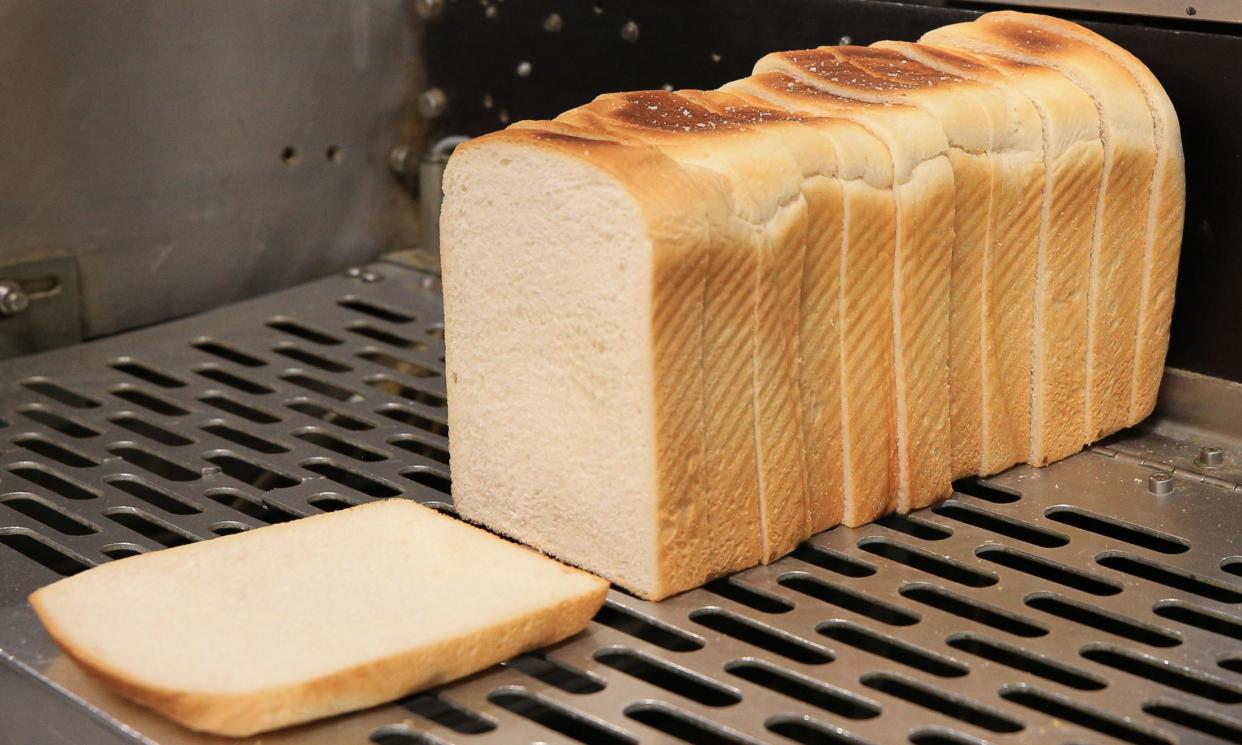Salt in sliced breads exceeds crisps, say health campaigners

Three out of four loaves of sliced bread sold in UK supermarkets contain as much salt in one slice as a bag of ready salted crisps, according to new research.
The findings prompted calls for a clampdown on the large amounts of salt found in one of Britain’s staple foods, because eating too much of it raises the risk of a heart attack or stroke.
Action on Salt, a food research and campaign group, said that five types of sliced bread are so salty that they contain at least 0.9g per serving of two slices, which is more of the substance than that found in two small bags of McDonald’s French fries, each of which has 0.44g.
There is also as much salt in two slices of Hovis soft white extra thick bread – 1.2g – as a McDonald’s hamburger.
Graham MacGregor, a professor of cardiovascular medicine who chairs Action on Salt, demanded urgent government action to tackle the “disgrace” of excessive salt levels.
It analysed the make-up of 242 sliced breads made by 28 different companies and sold in 10 of the country’s largest supermarkets. In 75% of them, just one slice contained at least as much salt as the 0.34g found in a 25g bag of Walkers ready salted crisps.
Government guidelines advise that bread should contain at most 1.01g per 100g. However, Action on Salt found that the Hovis granary loaf has 1.28g per 100g and the same manufacturer’s seeded bread had 1.24g per 100g, while Marks and Spencer’s Thick White Super Soft Loaf had an unusually high salt content among white breads studied – 1.03g per 100g.
M&S also produce a wholemeal loaf with a lot of salt – its M&S The Bakery Soft Golden Wholemeal Farmhouse Loaf contains 1.03g per 100g.
“Reducing salt is the most cost-effective measure to lower blood pressure and reduce the number of people dying and suffering from strokes and heart disease”, said MacGregor, a professor at Queen Mary University of London and campaigner for healthier food.
“It’s therefore a disgrace that food companies continue to fill our food with so much unnecessary salt, as shown here in bread.”
Action on Salt’s findings suggest that bread generally still contains more salt than when they examined a wide range of products in 2011.
In a plea to ministers to take decisive action to force food firms to make their products healthier, MacGregor added: “For too long the food industry have been in charge of public health, at our expense. It’s time for the government to stop letting people die needlessly.”
The World Health Organization (WHO) estimates that around 99% of adults worldwide consume more salt than the 5g per day maximum it recommends. Intake of excess salt leads to about 2 million deaths a year globally, it believes. People in England typically consume 8.4g a day.
In a report earlier this month the WHO warned that the world is unlikely to meet its target of a 30% country-wide cut in the amount of salt people consume by 2030.
By last October just 5% of WHO member states had implemented two of its policies to limit salt intake, “further demonstrating the massive commitment still needed to move closer to a level of sodium intake that will not cause needless heart attacks and strokes”.
Andrew Pyne, the chief executive of the Federation of Bakers, said: “Overall the bread and bakery category has been very successful in reducing the amount of salt in bread. Over the past 10 years the industry has achieved up to a 30% reduction in salt, to a level of less than 1g of salt per 100g of bread.
“The latest industry data shows that bread contributes less than 10% of the dietary intake of salt in the UK.”
Salt plays an important role in helping to improve bread’s texture and flavour and ensure that it stays fresh for longer, Pyne added.
“All bread is a convenient, versatile and valued part of a healthy balanced diet and at a time when consumers’ budgets are particularly stretched, it’s more important than ever to be clear and accurate about foods like bread that have so much to offer.”
A spokesperson for the department of health and social care said the fact that salt can increase the risk of strokes and heart attacks “is why we’ve taken action by restricting the placement of foods high in salt, sugar, or fat in large retail settings.
“But more needs to be done, and we want industry to take responsibility and continue cutting the amount of salt in their products, so levels are as low as possible.”

 Yahoo News
Yahoo News 
